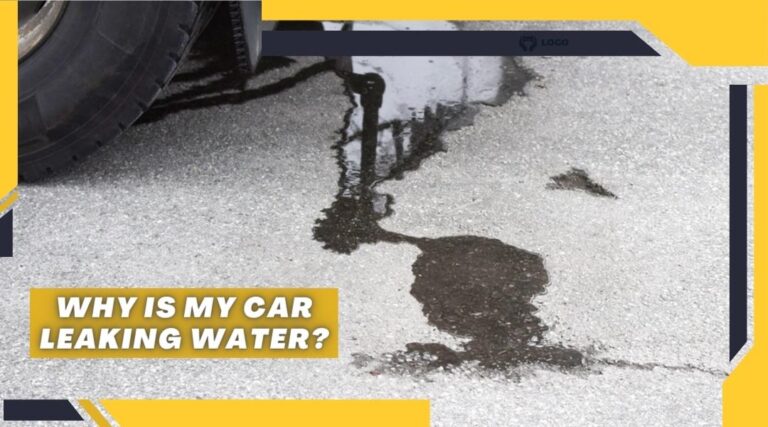Have you observed that your automobile in your garage or when parked on the sidewalk is seeping liquid? Don’t be worried. A car water leak source is generally not a significant problem; it’s most likely not even a leak.
Moisture in the cooling system is frequently the source of a water leak from your vehicle. When it’s turned on, a tiny amount of water can collect at the back of the engine and generate potholes.
It usually has moisture from the emissions if you notice water near your muffler. It’ll go away once the car has warmed up enough. Non-clear liquids are the only severe leaks you’ll have to help find. So let’s get into more detail about these leakages.
What Kind of Liquid Is Seeping From Your Automobile?
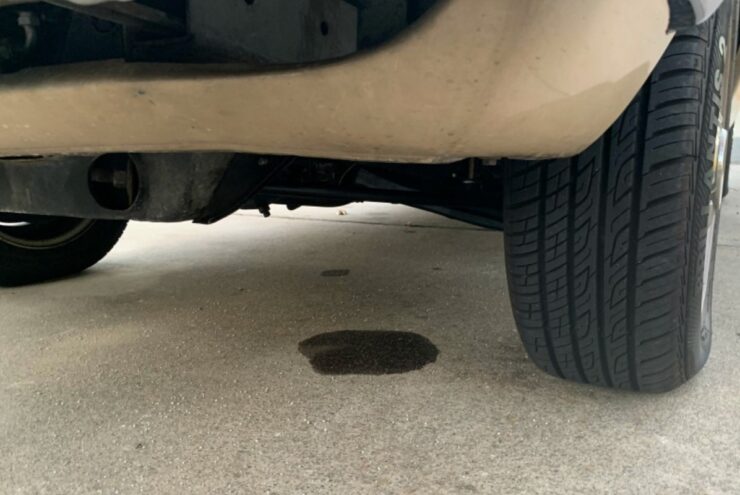
- Source: pinterest.com
Although transparent fluid flowing from your car’s air conditioning system is rarely a cause for concern, some other hue of liquid could indicate a significant problem. While your vehicle is driving, insert a piece of paper under the leakage and use this method and see what kind of liquid is flowing out:
• Tangerine or yellow coloration can be seen in the radiator’s coolant or automatic gearbox fluid.
• The liquid in windshields is often blue.
• The color of powered steering or gearbox fluid is frequently red.
• Brake fluid appears dark brown, indicating that brake maintenance is required. It also works with old motor oil.
• Antifreeze spills are often pale green and originate from the cables, fuel pump, or heater.
• It’s most likely hydraulic steering or powertrain fluid if the color is pink.
Is there liquid leakage inside your vehicle?
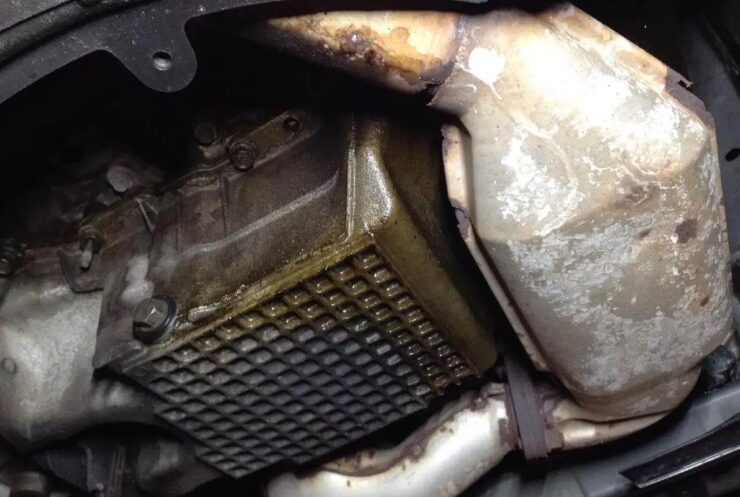
- Source: pinterest.com
What transpires if you detect water pouring into the interior of your vehicle? A car spilling liquid in the interior could signal an A/C problem in some circumstances. That isn’t always the situation, though. A faulty windscreen, an old roof, severe rusting, or damaged joints in the car’s body panels are possibilities for water infiltrating the vehicle. Here are a few options for why your car’s A/C is sprinkling water.
• The outlet on the condenser is clogged.
• The base of the condenser is seeping.
• The A/C device’s acrylic or silicone gaskets have broken.
Why Is My Car Leaking Water? (Toyota Cars)
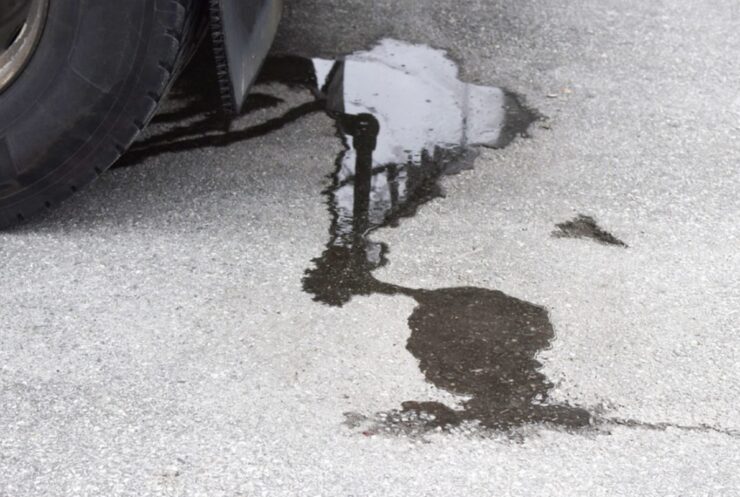
- Source: cashcarsbuyer.com
Water pouring from beneath a car usually is not a significant problem, but to be safe, follow these procedures to figure out what’s wrong:
• As previously stated, evaluate the color by inserting a fresh piece of paper beneath the leak.
• A burst seal can lead to a leaky radiator, resulting in white smoke and liquid water escaping via the exhaust system. The refrigerant burns with the fuels, resulting in a tremendous quantity of water.
• A refrigerant leak is easily identifiable since it appears yellow or orange. If the coolant reservoir liquid pressure is low then it needs to be taken to the service center.
• The damaged tank filled with windscreen wiper liquid can result in leakage as the windscreen wiper liquid is transparent. When the fluid tank expands it causes cracks in the tire. This results in constant leakage of liquid from the reservoir.
Liquid Seeping from a Vehicle: Possible Causes and Remedies
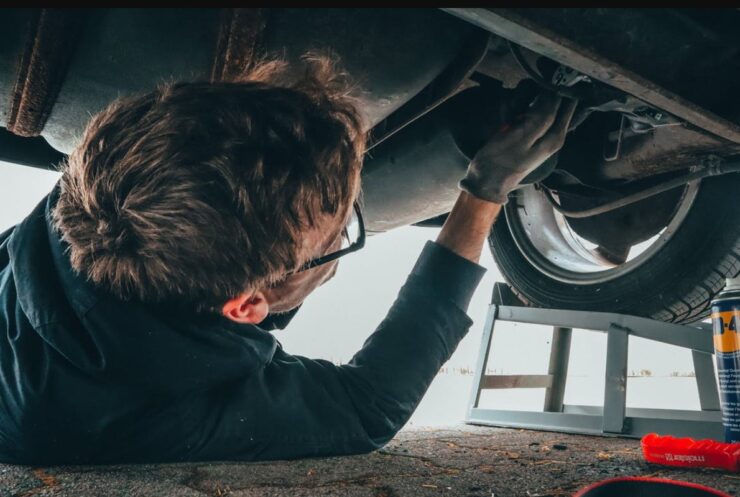
- Source: pexels.com
Once your vehicle is spilling water, you’ll need to get to the bottom of the problem as quickly as possible. To prevent further damage from persisting, you must first ensure that liquid is the seeping component to get to the source of the issue. Recall that water seeping from an automobile might be a simple remedy or even a more expensive repair.
The Main Suspect Is Air Conditioning
The air conditioning system is one of the most prevalent sources of water leakage in automobiles. It’s possible that the car A/C is seeping spillages or spreading to moisture elsewhere. If the water in the air collects on the components of your ac system, it might cause your automobile A/C to leak liquid. The gathered water will dribble down into the area towards the engine’s back.
Whenever the A/C is on, use the recycling settings rather than the clean air option to reduce the chance of water seeping inside the automobile. You will also not be having new air into the car with high water content in this manner.
Windscreen Washer Mechanism
The liquid could potentially be coming from your windscreen washer unit.
You may typically disregard the leakage in this instance because it will not suggest any severe difficulties.
The Emissions
The engine could be the cause of your vehicle seeping water below. A tiny volume of liquid may be ejected from the sector as a means of the burning fuel cycle. This is perfectly normal and nothing to be concerned about. You’ll see that the liquid originates from the exhaust in this scenario.
There seems to be one exception, though, if you observe water flowing from the engine: check your reservoir level to ensure the liquid isn’t water. Fluid from the outflow is probably liquid and safe as your radiator supply is adequate.
Damage to the body
If there is any damage to the car’s body you can check it while washing it off. When you find water inside the car then it signifies that the water is seeping through the body of the car.
In the event of physical harm, you can correct the problem to prevent the car door from sprinkling water. Your technician will inform you of any repairs that are required.
The Refrigeration System
One may also observe their automobile seeping liquid when stationary due to a refrigeration problem. In this situation, you’ll probably want to double-check that the water leaking is liquid rather than refrigerant. If you detect water coming from a tailpipe, check the radiator amount in your system to ensure it isn’t coolant.
Should I Worry If My Car Is Leaking Water?
If you notice water dripping from your car, it can be concerning. However, it is not necessarily a cause for alarm. In many cases, a car leaking water is a normal part of its operation, especially during hot weather. Here are some common reasons why your car might be leaking water:
- Air conditioning: If you notice water dripping from underneath the front of your car, it is likely that the water is condensation from your air conditioning system. The A/C evaporator produces condensation as it cools the air inside the car, and this water is drained outside of the car through a tube. This is a normal part of your car’s operation, and you do not need to worry about it.
- Rain or snow: If you have been driving in wet weather, it is possible that the water dripping from your car is simply rain or snow that has accumulated on the undercarriage. This is also normal and nothing to worry about.
- Coolant: If the water is a bright green or yellow color, it could be coolant leaking from your car. This can be a serious problem and should be checked by a mechanic as soon as possible. Coolant is important for regulating your car’s temperature, and a leak can cause overheating and engine damage.
- Washer fluid: If the water is coming from the front of the car and has a blue or pink tint, it is likely washer fluid leaking from the reservoir. This is not a serious issue and can be easily fixed by replacing the reservoir or hose.
- Sunroof: If your car has a sunroof, it is possible that the water is coming from there. Sunroof drains can become clogged with debris, causing water to accumulate and leak into the car. This can cause water damage to the interior of the car and should be fixed as soon as possible.
How To Know If The Liquid Isn’t Water
If you notice liquid leaking from your car, it’s important to determine what kind of liquid it is. Here are some tips to help you identify if the liquid isn’t water:
- Check the color: Water is typically clear, so if the liquid is a different color, it’s likely not water. Antifreeze is usually green, yellow, pink, or orange, while transmission fluid is red, brown, or pink. Oil is typically brown or black, while brake fluid is clear or yellowish.
- Check the consistency: Water is thin and has no viscosity. Antifreeze and transmission fluid are both thicker than water, with antifreeze being slightly more viscous than transmission fluid. Oil is thicker than both of these, while brake fluid is thin and has a low viscosity.
- Smell the liquid: Water has no smell, so if the liquid has a distinct odor, it’s likely not water. Antifreeze has a sweet smell, while transmission fluid has a burnt smell. Oil has a distinct petroleum smell, while brake fluid has a sharp, acrid odor.
- Taste the liquid (caution advised): We do not recommend tasting any liquid that is leaking from your car, as it can be dangerous or poisonous. However, some car experts recommend using this method to identify brake fluid, which has a bitter taste.
- Get a professional opinion: If you’re unsure what the liquid is, take your car to a mechanic or an expert who can identify the liquid and diagnose any issues with your car.
FAQ
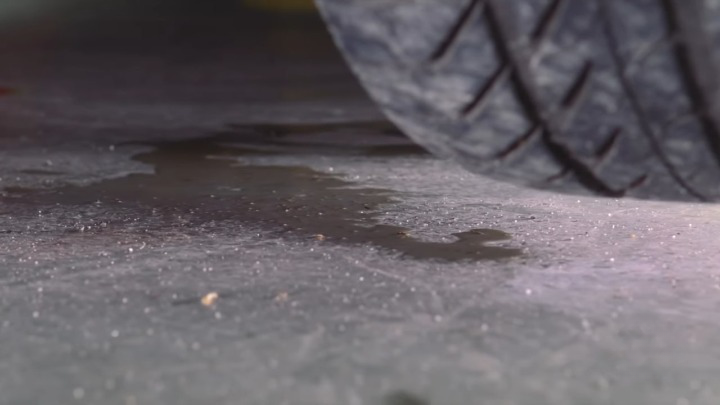
Can a car leak water if it hasn’t been driven in a while?
Yes, a car can still leak water even if it hasn’t been driven in a while. Moisture can accumulate in the car’s cooling system or air conditioning system, and this can cause water to leak out when the car is turned on.
Can a car leak water if it has a crack in the windshield?
Yes, a crack in the windshield can allow water to seep into the car. This is why it’s important to get windshield cracks repaired as soon as possible.
What should I do if my car is leaking water?
If you notice water leaking from your car, the first thing you should do is try to determine the source of the leak. Check the color and consistency of the liquid to see if it’s water or something else. If you’re unsure, take your car to a mechanic or an expert who can identify the liquid and diagnose any issues with your car.
Is it safe to drive a car that is leaking water?
It depends on the source of the leak. If the water is just condensation from the air conditioning system or rainwater that has accumulated on the undercarriage, then it’s generally safe to drive the car. However, if the water is coolant or another type of fluid that is necessary for the car to operate properly, then it’s not safe to drive the car until the issue has been fixed.
How can I prevent my car from leaking water?
Regular maintenance can help prevent water leaks in your car. Make sure to have your cooling system and air conditioning system checked regularly, and replace any worn or damaged parts. Also, be sure to replace your windshield wiper fluid reservoir if it becomes damaged, and keep your sunroof drains clear of debris.
Conclusion
Now that you know the responses to the question “why is my car leaking water? (Toyota cars)” you ought to be able to determine if the leakage is a severe issue or simply moisture. If you feel your vehicle is seeping into something besides liquid, take it to the nearby service center as soon as possible.
Related Posts:
- What Does Oil Can And Wrench Light Mean - Decoding…
- Keeping Water in The Car - Importance of Hydration
- Why Is My Car Burning Oil? - Toyota Cars Burning Questions
- Why a Toyota Corolla is the Top Choice for…
- Car Comparisons - Find a Model That Model Suits Your…
- Difference Between 235 and 245 Tires - Best Suited…

